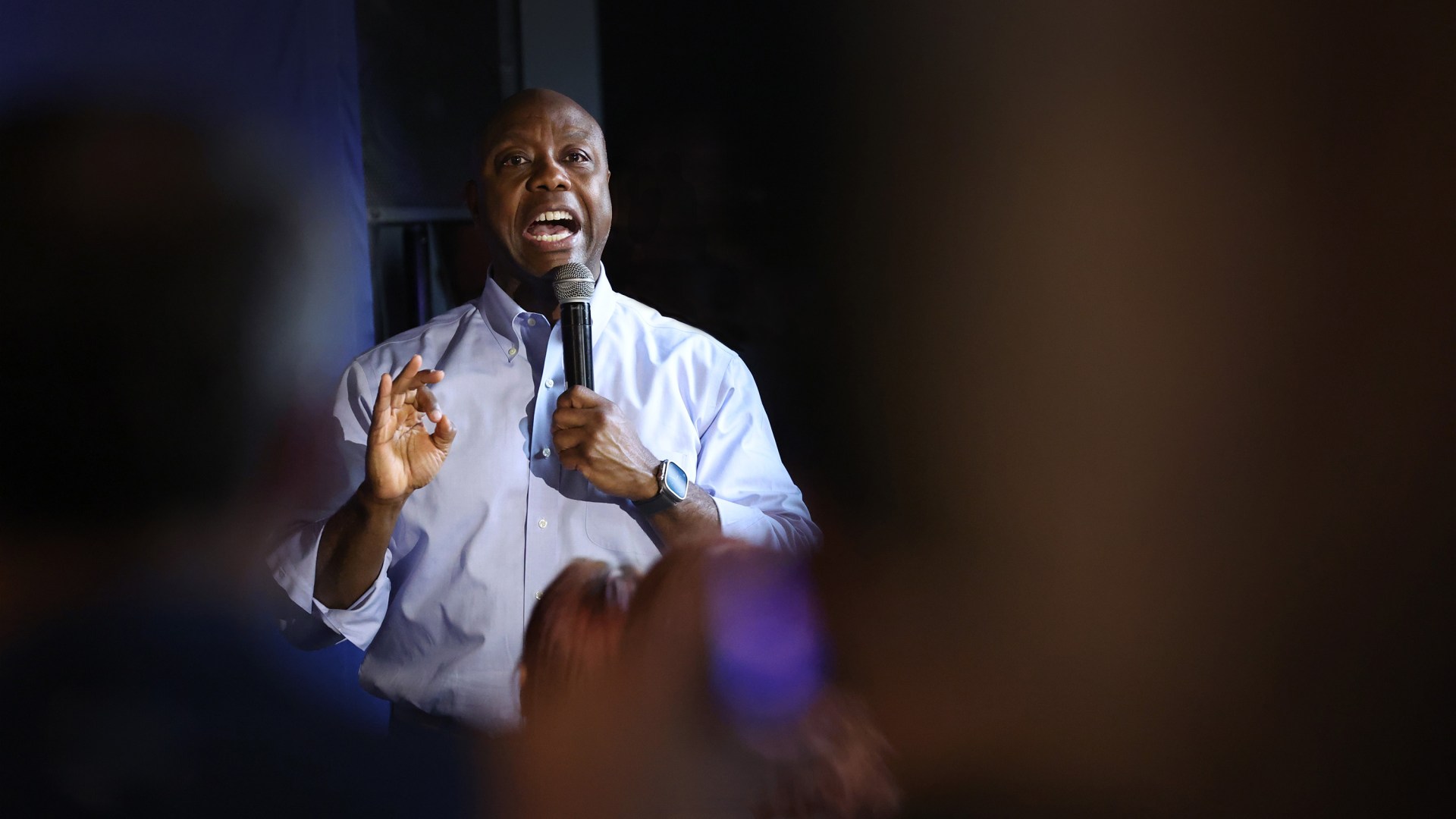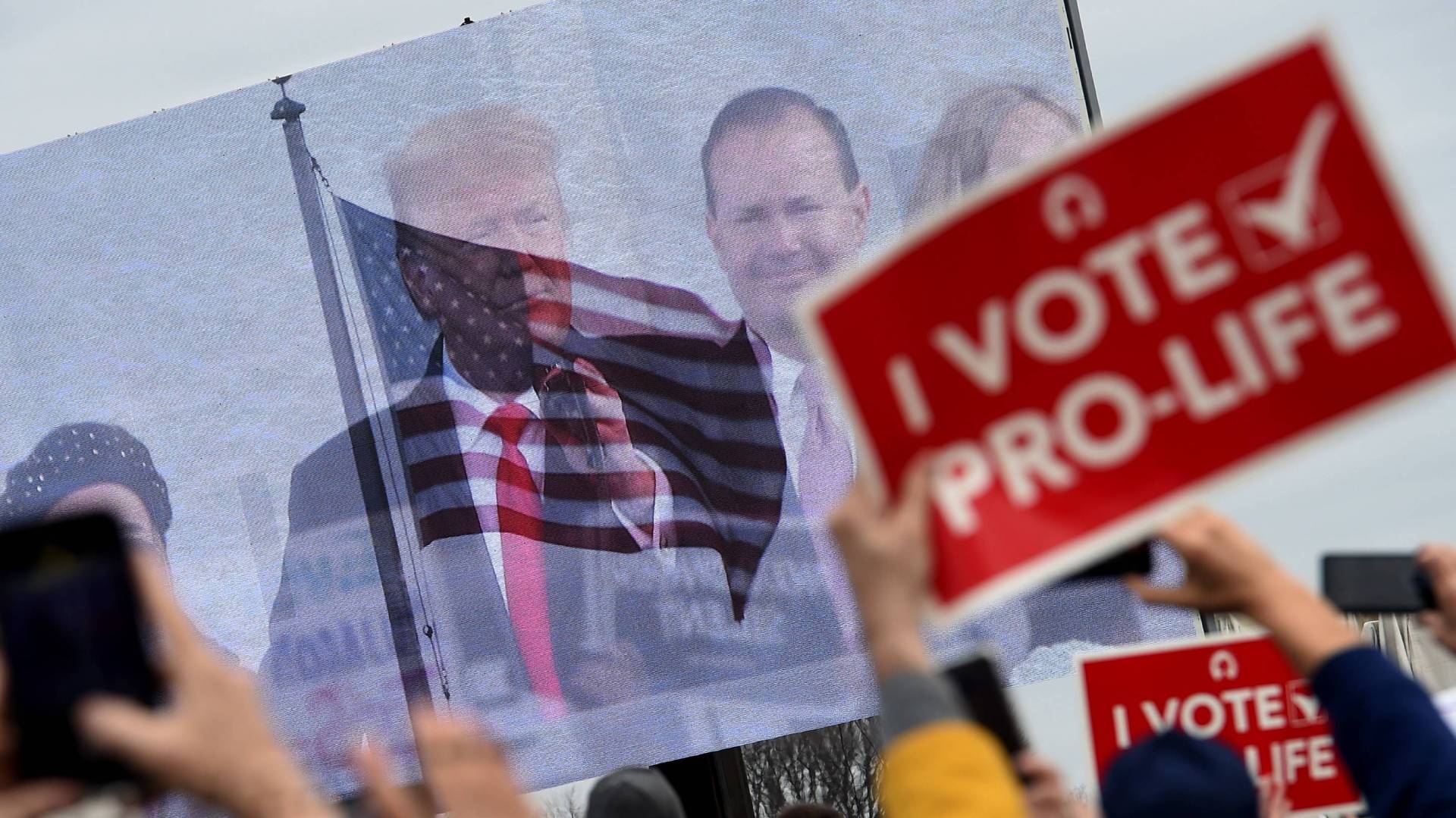Tim Scott entered politics decades ago as a proud 30-year-old virgin. Campaigning at the height of 1990s evangelical “purity culture,” he proclaimed that sex should be reserved for marriage. Years later, chastity was still one of his talking points—even as he seemed to admit that his own commitment to abstinence had faltered.
Now, the South Carolina senator and vice-presidential hopeful is getting married to a “lovely Christian girl,” Mindy Noce. They’re set to tie the knot in early August, between the Republican National Convention and Election Day.
The current status of Tim Scott’s v-card is, of course, none of our business. The fact that it was ever a campaign talking point, in retrospect, is more than a little bizarre.
But the senator’s apologia for both his abstinence and his singleness also makes sense. It’s indicative of our collective suspicion toward older single people, present in both secular and church culture—our tendency to regard those who’ve never been married with pity, concern, and unease. This in spite of trends toward later and fewer marriages, and more writing on singleness in the church.
It’s easy to understand why our sex-obsessed culture regards a 30-year-old virgin (and especially an almost-60-year-old virgin!) with revulsion and confusion. But that same virgin is a pariah in the church for different reasons.
Evangelicals tend to marry young, relatively speaking. I was no exception. Five of the six siblings in my family had married by age 25—one of us at 19. In the church context I grew up in, getting married at 23 made sense . Implicit in the purity culture ideal of “saving yourself for marriage” was the reassurance that abstinence was only temporary. Singleness was a season of white-knuckled resistance to porneia, eyes on the prize of future marital bliss . I know abstinence is hard, books, pastors, parents, and mentors seemed to say. But if you marry young, at least you won’t have to abstain for very long.
But what if there was no spouse to save yourself for? What about those who remained unmarried for years or decades? The church’s insistence on purity rings and pledges didn’t allow for the possibility of single adulthood beyond one’s early 20s—especially for male single adulthood.
That’s because for young Christian men, then and now, marriage is portrayed as solving the problem of out-of-control sexual desire. That view is bolstered by a particular reading of Paul’s teaching in 1 Corinthians 7:9 that it’s better to marry than “to burn” (purousthai). Young men, notorious for their ravenous carnal appetites, “need” an outlet. The provision of a wife is presented as God’s solution to this brute biological fact.
This reading of 1 Corinthians genders and particularizes Paul’s language to men in a way that the apostle himself does not. Paul does not say that post-adolescent males should pursue marriage because they’re especially virile. On the contrary, later in the same chapter (v. 28), he seems to discourage marriage; those who marry “will have worldly troubles,” literally, “tribulation by the flesh.”
As a not-yet-married man in his late 50s, Tim Scott would be an unusual nominee for vice president. Likewise, in the church, it’s exceptionally rare to find a single man (or woman, for that matter) serving as a head pastor or senior leader. One Barna study puts the percentage of married pastors at 96 percent. Meanwhile, Pew Research Center reports the proportion of never-married evangelical adults at 18 percent and rising.
So why are single people underrepresented in church leadership?
I suspect one explanation lies in wrong ideas about sexuality and marriage that make us wary of never-married Christian men in particular—and more so the older they get. We simply cannot imagine a sexually mature adult male without an “outlet” in marriage; we worry (or assume?) that older single men are acting out their sexual desire in ungodly ways.
What’s more, when marriage is equated with emotional, relational, moral, and spiritual maturity, being unmarried implies a corresponding immaturity. I know a man who was once passed over for a ministry position because an elder expressed concern about his singleness at age 30. By this measure, Jesus himself would have been considered a poor candidate.
While evangelicals have been quick to commend marriage to young people as an alternative to hookup culture, we have yet to produce a robust vision for abstinence’s relevance for older people: for virginity in one’s 30s, 40s, and beyond. This is especially alarming given that Christians (including many Christian men) are remaining single well into their adult life. When the promise of an early marriage fails to materialize, the church has alarmingly little vision for ongoing growth in discipleship, much less leadership.
Christians are right to condemn the cresting individualism that’s led to more and more young people delaying marriage and childbearing indefinitely. But too often, rather than rejecting this self-actualization, we merely offer the same idol by another means. An early marriage and lots of kids, we often argue, is the most reliable, respectable path to the good life.
The pursuit of chastity shouldn’t be undertaken to make us more appealing to a potential marriage partner—much less as a guarantee of “mind-blowing” sex or familial bliss. As with all Christian virtues, chastity is lived before God. And it envisions a future reality where the human institution of marriage will end and all of us will be enfolded into Trinitarian love.
Ultimately, we can understand extended or lifelong singleness in light of what’s to come for believers. When Paul says he wants to spare single people the trouble and distraction of married life, he reorients his community toward the kingdom of God. The present order of the world, including (remarkably!) human marriage, is passing away (1 Cor. 7:31); the eschatological order of God’s new world has broken into the present through the death and resurrection of Christ.
This vision of the now-and-future kingdom coheres with what Jesus teaches in the Gospels: that those who leave their family will receive a new one in the kingdom (Mark 10:29–31; Matt. 19:27–30) and that there will be no marriage in the resurrection (Matt. 22:30; Luke 20:34–36).
When Jesus is told that his mother and brothers wish to speak to him, he gestures toward his disciples; these are now his “mother, sisters, and brothers” (Matt. 12:46–50). Paul addresses the recipients of his letters as “brothers [and sisters]” and identifies himself as a father (1 Cor. 4:15). Peter exhorts his readers to love the family (“brotherhood,” 1 Pet. 2:17). The church constitutes a new, dare we say truer family, not merely one that exists alongside our biological relations.
The church-as-family vision of the New Testament is a key part of what makes extended and lifelong singleness possible. For those who don’t have a spouse or children to take care of their everyday needs, the church should (and historically has) filled in the gap.
Tim Scott’s presence on our nation’s political stage as a single Christian man has been unique, as has been his continued adherence (in principle, at least) to a traditional sexual ethic. His story is timely given not only demographic shifts toward singleness but contemporary conversations rethinking what sex is for and how community is constituted. Amid these debates, models of faithful, chaste, single, mature Christians are more radical—and more needed—than ever.
Zachary Wagner is director of programs for the Center for Pastor Theologians and the author of Non-Toxic Masculinity: Recovering Healthy Male Sexuality.

















































